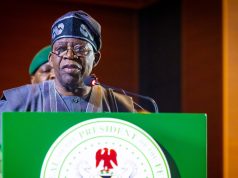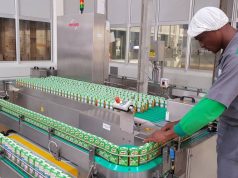The Nigeria Governors’ Forum (NGF), federal representatives, and Woodhall Capital recently convened a pre-investor forum at the Aso Rock Villa, Abuja, to examine financing models that could support large-scale state-led infrastructure projects across the country, according to a statement by the organisers.
Woodhall Capital stated that, in partnership with the NGF, the Presidential Enabling Business Environment Council (PEBEC), the Office of the Senior Special Assistant to the President on International Cooperation (OSSAP-IC), and the African Export-Import Bank (Afreximbank), the forum brought together African leaders, investors and financiers to accelerate capital mobilisation for subnational governments and strategic infrastructure projects.
The forum discussed growing interest in positioning subnational governments as drivers of economic transformation under the theme “Facilitating Intra-African Trade: Unlocking the Potential of African Direct Investments (ADI) and Foreign Direct Investments (FDI) to Drive Trade and Sustainable Growth. “
The participants emphasised the crucial role of Nigeria’s subnational governments in serving as catalysts for regional economic integration under the African Continental Free Trade Area (AfCFTA).
Dignitaries at the event included Vice President Kashim Shettima, represented by Ibrahim Hassan Hadejia, deputy chief of staff to the President (Office of the Vice President); Governor AbdulRahman AbdulRazaq, and the Chairman of the Nigeria Governors’ Forum, represented by Dauda Yinusa.
Others are the Executive Director, Policy, Strategy and Research; Alain-Thiery Mbongue, Chief Operating Officer and Head of Mission, Anglophone West Africa, Afreximbank; and representatives of the Nigerian-British Chamber of Commerce (NBCC).
In addition to keynote addresses and investor-confidence panels, the forum witnessed the signing of Memoranda of Understanding (MoUs) and partnership agreements between Woodhall Capital and Afreximbank.
The agreements included the Africa Trade Gateway (ATG) Contract, which elevated Woodhall Capital from a Market Maker Agreement to a Strategic Trade Corridor Partner.
In addition, the Creative Hub MoU between Afreximbank’s Creative Africa Nexus (CANEX) and Woodhall Capital was signed to finance Africa’s creative economy and transform cultural assets into globally tradable investment classes.
Africa’s growth
Woodhall Capital President Mojisola Hunponu-Wusu underscored the importance of coordinated efforts in driving sustainable growth across the continent at the forum.
She reaffirmed the firm’s commitment to creating structured investment platforms that connect state-led development initiatives with domestic and foreign investors.
Ms Hunponu-Wusu further noted that Africa’s growth narrative is increasingly subnational, highlighting the need to unlock the economic potential of Nigerian states.
She explained that achieving this goal requires strategic partnerships, policy alignment, and adequate capital mobilisation, all of which are essential for fostering sustainable and inclusive economic transformation across Africa.
ALSO READ: Infrastructure investment and eradicating multidimensional poverty: The Nigerian imperative, By Tope Fasua
Also, the Director-General of the Presidential Enabling Business Environment Council (PEBEC) Secretariat, Zahrah Audu, reiterated the council’s mission to make Nigeria an increasingly easier place to do business.
Ms Audu stressed that the objective is to enhance competitiveness by creating a sound policy environment, strengthening institutions, and building the trust required for investors to make long-term commitments.
She added that the African Continental Free Trade Area (AfCFTA) presents a unique opportunity to expand markets, strengthen regional value chains, and position Africa as a formidable player in the global economy.
Economic integration
However, the Regional Chief Operating Officer for Anglophone West Africa (AWAF) at Afreximbank, Alain-Thierry Mbongue, reaffirmed the bank’s strong commitment to supporting sub-sovereign leadership and advancing economic integration across Africa.
He noted that the African Sub-Sovereign Governments Network (AfSNET) has evolved into a continental platform that fosters cross-border partnerships, facilitates access to finance and investment readiness support, and connects local leaders directly with investors and trade opportunities.
Mr Mbongue emphasised that development must be decentralised, beginning where needs are most pressing, in cities, provinces, counties, and regions, before extending outward to influence national and continental growth.
The pre-investor forum reinforced the shared determination of governments, financiers, and investors to deepen Africa’s economic integration and position Nigeria as a leading hub for intra-African and global investment flows.
It also served as a prelude to the forthcoming International Investors Forum in London, Dubai, and Abu Dhabi, which aims to consolidate Nigeria’s position further as a prime destination for investment and economic partnerships.








